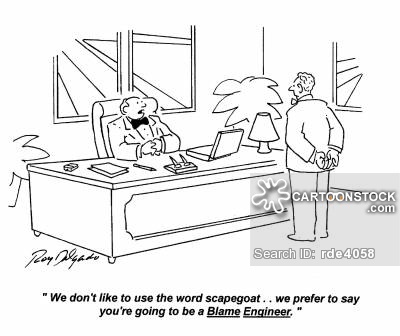https://www.youtube.com/watch?v=KvUZQ_FRkak
Virtue may have its place, but when the executioner’s hand is near, weep your victim-hood as softly as you can.
As a whistleblower who ‘won’ an eleven year war of attrition and secured justice I have been released from the entrapment of victimhood although I have been victimised. My work involves tireless campaigning to invite others to see whistleblowers as defiant moral voices, your moral voice in the public interest. This is diametrically opposite to how we are framed; mostly as deviant victims.
There are many whistleblowers who are kicked to the margins of society without a fighting chance in securing any form of justice. This keeps their sense of self alive and present to helplessness and victim-hood. They revert to a narrative about themselves which becomes a locked path.
It would be difficult to find serious resistance to the notion that it is always wise to “be yourself;” in fact, being true to our self is often portrayed as an act of courage, something that must be pursued even in the face of group pressure. Film and literature tell us again and again that there is virtue in standing out and being different (Kim & Markus, 1999) and that those that do are often labelled heroic. Heroic because dissenting, speaking out, blowing the whistle is outside current social norms and takes an enormous amount of moral courage and risk. A hero is rarely the one who plays it by the book or submits to others’ authority. More often the hero is the maverick, the nonconformist, the rule breaker, or the outsider; the whistleblower .
Blowing the whistle often leads to severe punishments and even the dissolution of a group (e.g., Enron, LeisureNet and other corporate cases). Whistleblowing is not a variant of altruistic punishment, in which the whistleblower simply brings a deviant group member back into line with the group. This is because most whistleblowers go against their group by labeling a practice as immoral when it is not labelled as such by other members of the group. The irony is that dissenters/whistleblowers are keen to challenge group norms not to alienate themselves from the group but in order to persuade others to think critically about and alter their own behaviour. The ironic result is that whistleblowers are considered uncooperative members of their group and are therefore ousted. (Near & Miceli, 2011). Because this ousting is the current social norm the majority of people keep their dissenting thoughts private for fear of social sanction (Deutsch & Gerard, 1955), and with disastrous consequences (Janis, 1982).

‘We don’t like to use the word scapegoat.. we prefer to say you’re going to be a Blame Engineer.’
Banished whistleblowers find themselves in projected ambiguity. Some consider them heroes according to the belief in a just world (Lerner & Miller, 1978) that those who do good deserve reward, not punishment or blame. Others blame them for exposing the vulnerabilities of Self, Situation and Systems and seek to diminish, damage and destroy the whistleblower.https://wendy337.wordpress.com/2015/05/26/understanding-rebel-resentment-it-all-begins-with-you/
Caught between these ambiguities, the whistleblower, unconsciously defaults to victim-hood to deflect unjust and inappropriately projected blame. At first blush, the victim strategy seems a poor choice; after all people are only too happy to blame victims for their plight (Lerner & Miller, 1978). However, victims can also evoke sympathy and decrease blame . Moral typecasting holds that people classify others as either moral agents (doers of good/evil) or patients (recipients of good/evil). As these roles are enduring and mutually exclusive, typecasting suggests that victims—moral patients—should be seen as relatively incapable of evil and earn less blame than moral agents. Alternatively, heroes remain blameworthy as moral agents.
Two mechanisms may explain the effect of victims earning less blame than heroes:
1. EMOTION —victims may elicit more sympathy than heroes, with sympathy leading to reduced blame (Weiner, 1980);
2. MIND PERCEPTION – people generally perceive the minds of others along the two independent dimensions of
a) Agency (the capacity for intentional action) an
b) Experience (the capacity for feeling) (Gray, & Wegner, 2007).
Research suggests that, relative to heroes, victims will be seen as less capable of Agency (future actions) and more capable of Experience and that this—not sympathy—will be linked to blame judgments.
The conclusion is that heroes are considered blameworthy as moral agents, have the capacity for future action (another round in the ring), have reduced capacity for feelings and are therefore afforded little clemency and may actually earn increased blame. Victims are framed as moral patients, less capable of future action and thus incapable of blame. Take a look inside any courtroom and you can observe both of these strategies being frequently used by attorneys (Spence, 2005).
Whistleblowers are indeed Moral Agents and therefore Heroes. Society, you, hold the key to unlocking them from being trapped in victim-hood, robbed of the opportunity to contribute to moral deeds often on your or the future generations’ behalf.
Change the social norm from social sanctioning to engaging in Courageous conversations via Social Fitness https://speakout-speakup.org/#/training




Your article helped me a lot, is there any more related content? Thanks!